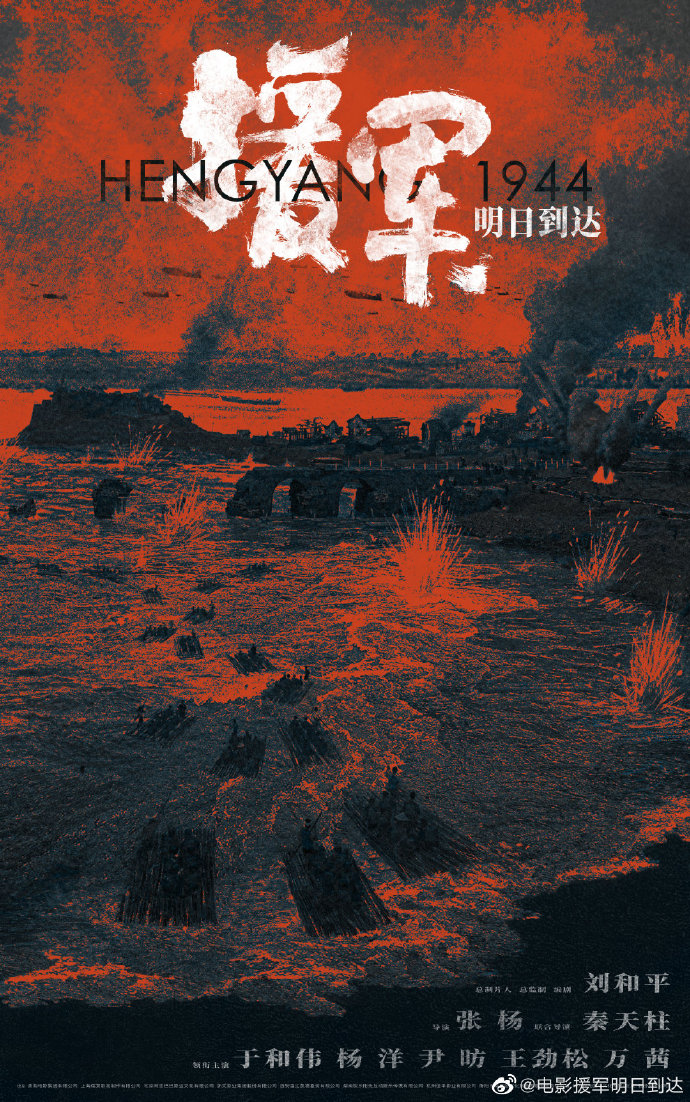
On September 2, the movie "Reinforcements Arrive Tomorrow" announced the start of the film and released the first concept poster. The film has a strong lineup in front of and behind the scenes. Due to He Wei, Yang Yang, Yin Fang, Wang Jinsong, and Wan Qian starring, the role information of several leading actors has not yet been released. In addition, Zhang Yang, director of "Kang Rinpoche", Liu Heping, the national first-class screenwriter, wrote and served as the chief producer. participants. 
"The Reinforcements Arrive Tomorrow" poster
The story tells that in June 1944, the Japanese army wanted to capture Hengyang within three days. The Nationalist government ordered the defenders to stand for seven days, waiting for reinforcements. After the garrison's communication battalion was bombed by the Japanese army, there was only one female operator and radio station left, and the radio station became the only channel to contact the outside world.
The film revolves around the defense of Hengyang in 1944 - the Chinese army defended against the Japanese army of 110,000 troops with 18,000 soldiers and more than 4,000 Hengyang migrant workers. In the absence of reinforcements to defend the city alone, the Japanese army suffered three times as many casualties as our army, and was blocked for 47 days. The Battle of Hengyang was the city’s offensive and defensive battle with the most casualties between the enemy and us in the history of the Chinese Anti-Japanese War and the longest frontal engagement of the Chinese army. Hengyang City was also known as the Anti-Japanese War Memorial City.
As early as four years ago, the film has been initially approved. The chief producer and screenwriter Liu Heping once talked about this work in an interview with "Film and Television Monologue". "When the Japanese attacked so vigorously, we were so hard to defend the city that we didn't even send a B-29 bomber, because the fuel was insufficient and we needed to support the India-Myanmar battlefield." According to Liu Heping, the Allied forces at that time—— The U.S. military did not support China's Henan-Xianggui Battle. During World War II, the U.S. military's assistance in the Chinese battlefield accounted for only 1.7%, of which 90% was used in the India-Myanmar battlefield, and only 0.17% was actually used in the Chinese theater. In Liu Heping's view, the Chinese people carried the War of Resistance on their own, and this film expresses this spirit: there has never been a savior, especially don't expect others, the dignity and strength of a nation can only depend on itself.
Screenwriter Liu Heping was previously known for his creation of classic Chinese dramas such as "No War in Peiping" and "Da Ming Dynasty 1566". He loves history and is a native of Hengyang. Therefore, in a media interview, he said, "I especially hope to write about the defense of Hengyang, even if we Do a 'dojo' for fallen warriors." "This is the national spirit, and they are fighting for the dignity of the Chinese nation," he said.
It is reported that the film is expected to complete shooting and post-production within a year.